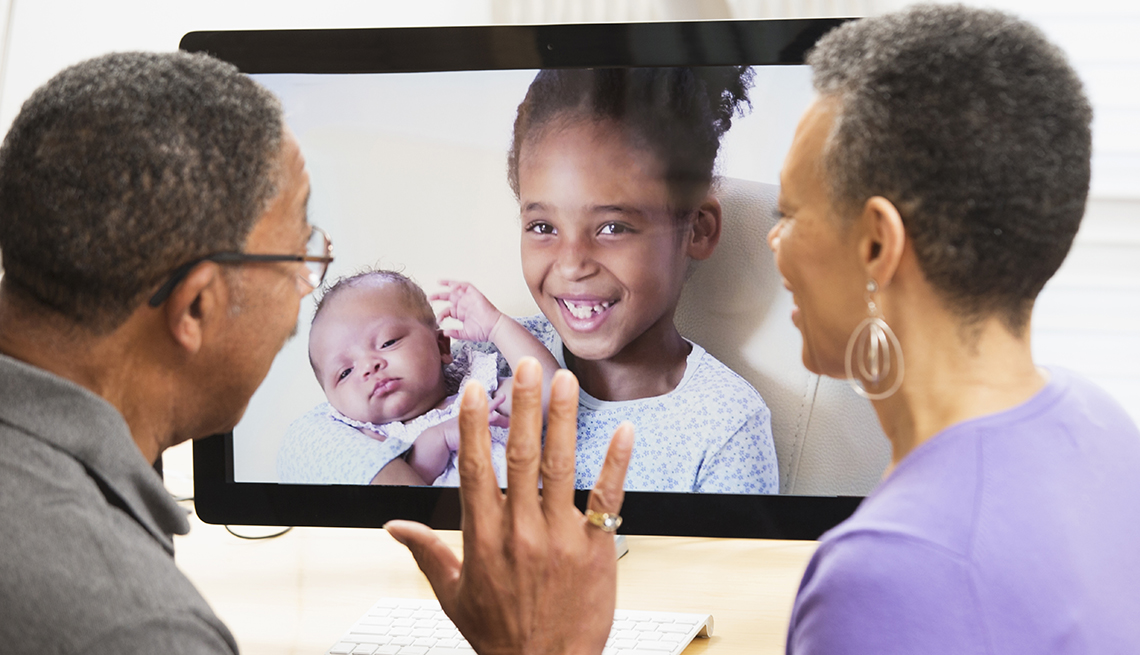How to Fight the Social Isolation of Coronavirus
Loneliness is a real health issue — and these steps can help save lives
by Erwin Tan, M.D., AARP, March 16, 2020 Comments: 7

Ariel Skelley/DigitalVision/Getty Images
1. Social isolation and loneliness are serious health issues
2. Plan and connect
It's important to talk to family and friends to develop a plan to safely stay in regular touch as we socially distance ourselves, or if we are required to self-quarantine for a possible exposure or are in isolation for a COVID-19 infection. This plan should confirm whom you can reach out to if you need help accessing food, medicine and other medical supplies.
It's also important that communication and planning allow us to remain safely connected as we practice social distancing. Involve another element: actual social connection. Remaining connected is especially important for people who live alone; regular social contact can be a lifeline for support if they develop symptoms. Regularly scheduled phone calls and video conferences along with texting and emails can help compensate for a lack of in-person contact. So take a break from news stories and social media; hearing about the pandemic repeatedly can be upsetting, and it's important to talk with people you trust about your concerns and how you are feeling.
Family and friends will need to work together to make sure they can remain connected without exposing each other to COVID-19. Look at your schedule and identify social connections that might be disrupted during an outbreak and consider alternative solutions to stay connected. If you are a family caregiver or have someone close to you who's more at risk of social isolation, discuss what will happen if either of you develops symptoms and whom you could call on for support or help.
3. Make a list of organizations that can help
Create a list of community and faith-based organizations that you or the people in your plan can contact in the event you lack access to information, health care services, support and resources. If your neighborhood has a website or social media page and you haven't joined it, consider doing so to stay connected to neighbors, information and resources. Consider including on your list organizations that provide mental health or counseling services as well as food and other supplies. State and local governments are setting up resource lists for those affected by COVID-19. The federal Substance Abuse and Mental Health Services Administration also has an online locator and hotline, at 800-662-HELP (4357), to help people find counseling services near where they live. AARP Foundation's Connect2Affect program provides information, self-assessments and affordable options for low-income older people to stay connected.
4. Remember pets (their value and their needs)
Pets can help combat loneliness, and some pets have been linked with owners’ longevity. The World Health Organization has also determined that dogs cannot get coronavirus. Still, it's always important to wash your hands after contact with your pets. And just as you need to ensure you have sufficient supplies for yourself and family, be stocked with food and other supplies for your pets.
5. Know who's most at risk for social isolation and loneliness
People at the highest risk of developing more serious illness from COVID-19 and who should be the most vigilant about social distancing will also be the most at risk of increased social isolation and loneliness. For example, the CDC has recommended that long-term care facilities discourage visitation.
Moreover, those under quarantine or in isolation will experience additional emotional and, possibly, financial hardship. While planning will be important, understand that many people are likely to experience increased social isolation and loneliness.
COVID-19 has also magnified existing disparities for low-income older adults. Internet coverage gaps — the so-called digital divide — are more prevalent in many places, especially low-income communities. These areas are often the last to get broadband and often at slower speeds, leaving these communities at an ongoing disadvantage.
If public sources of internet access such as libraries and commercial establishments close, regular phone calls will be increasingly important for friends and families to remain connected.
I asked my older neighbor across the street last week if she needed help with groceries and if she could pass along my phone number to her children, who live out of town, so they would have another contact on the same street as their mother. That personal interaction reminded me that COVID-19 is testing the bonds that connect us all. Reaching out to our friends, families and neighbors can help protect all of us from COVID-19 as well as social isolation and loneliness.
Erwin Tan, M.D., is a director at AARP Thought Leadership. His areas of expertise include geriatric and integrative medicine, health longevity, volunteering and perceptions of aging.

